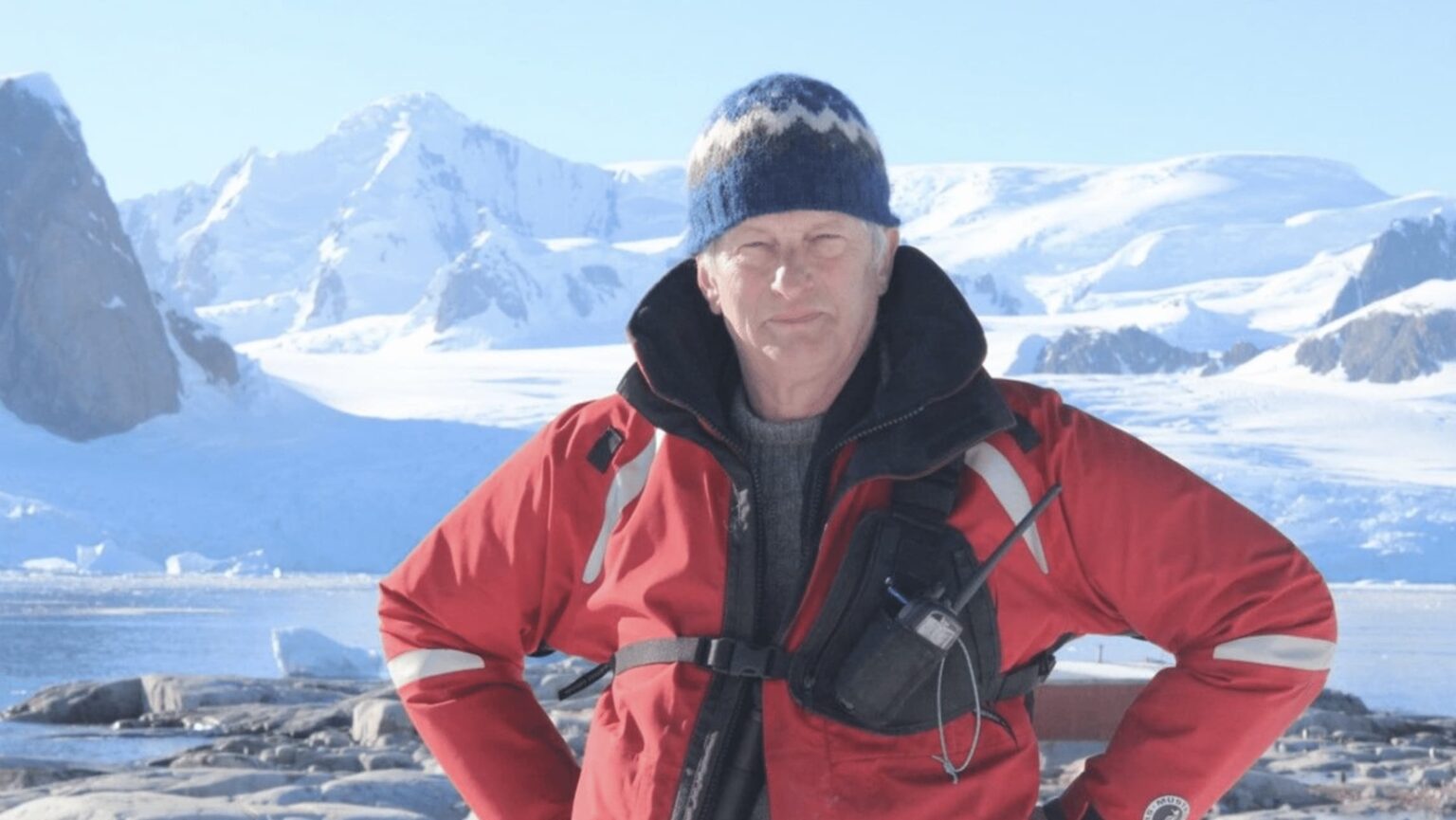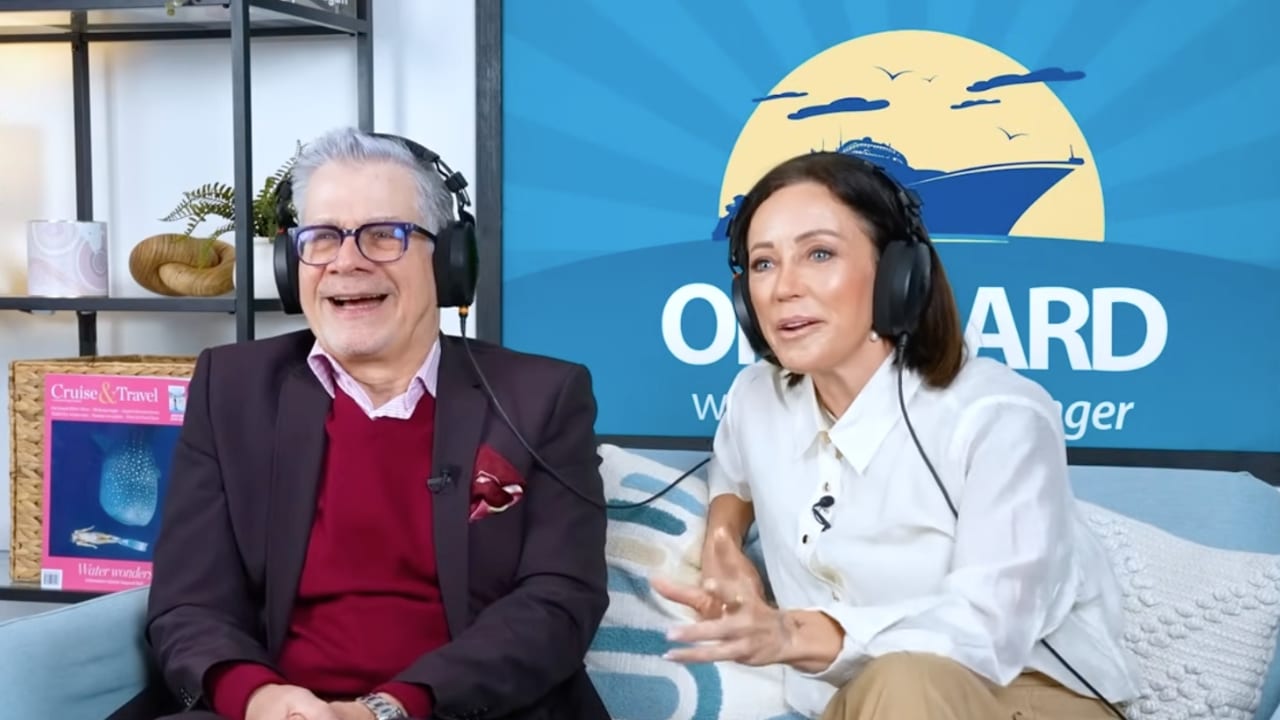Jonathan Shackleton, family historian and cousin of the legendary explorer Sir Ernest Shackleton, is setting sail on an extraordinary voyage aboard Ponant Expedition’s luxury icebreaker, Le Commandant Charcot, in January 2026, retracing the path of early polar explorers from Ushuaia to Hobart.
While eagerly anticipating this monumental journey, Shackleton is also raising a red flag about the escalating numbers of tourists in the polar regions, expressing concern for the future of these fragile environments.
“It’s getting crowded,” Shackleton warned, noting that some areas have seen over 100,000 visitors and with many passengers unable to disembark due to overcrowding.
“I get more anxious about that,” he told Cruise Passenger in an exclusive interview from his home in Ireland.
He emphasised his worry about the sheer volume of human presence in such a delicate ecosystem, though he agreed that increasing awareness of climate change and environmental impact among passengers might lead to a greater collective responsibility.
Shackleton lives in Mullagh in County Cavan, Ireland, where his family runs an organic farm and a forest. He is the historian for the family which traces its ancestry back to Abraham Shackleton, founder of a famous Quaker school in Baltimore, County Kildare, established in 1726.
He is passionate about Antarctica and its exploration and has taken part in numerous expeditions over the last 25 years.
As a historian, guide, photographer and Zodiac driver he has accompanied 44 groups in the Antarctic, including a memorable private voyage in 2016 with famous guests including Tom Hanks, Michael Palin and Jools Holland.
Shackleton said not all cruise lines were the same, and those which took their responsibilities serious;y were a good influence on the Polar regions.
He expressed significant admiration for companies like Ponant Explorations, highlighting their serious commitment to stewardship.
He recently experienced a “trip of a lifetime” with Ponant to the Ross Sea, an expedition that offered him a profoundly personal connection to the past. He recounted an unforgettable moment at his cousin Sir Ernest Shackleton’s hut on Ross Island.

“The captain of the ship and the expedition leader took me ashore on a rip before passengers, and we had a walk about half a kilometre through some deep snow… I’ll be reached my cousin on the hut,” he recalled.
What followed was a remarkable gesture: “A moment I’ll never forget my lifetime.”
“I’ve never been to the hut before. The captain of the ship was a very nice French guy…he said we’d like you to go out to the hut and if you would like to go in there on your own for a few minutes we’d love you to do that.”
Shackleton was struck by the incredible conservation work at the site, where only “six people allowed in at a time, you know you take off your boots and you take off your backpacks.”
Being alone in the hut, he said, made him feel as though the explorers “had just left,” surrounded by retained provisions. This immersive experience, he noted, truly connected him to the “extraordinary people” the early explorers were, enduring “harsh environments” with “no communication outside.”
Shackleton also recalled another unique aspect of his previous Ponant Expeditions cruise: “We had a great granddaughter [of] Captain Scott on board.”
This familial connection further deepened the historical resonance of the journey, allowing for rich discussions about the complex and often competitive world of early polar exploration. He reflected on the immense pressure faced by figures like his cousin Sir Ernest and Captain Scott, emphasising that their “success… depended on the people with them.”
He lauded the “wonderful staff and crew” on Ponant Expeditions, contrasting it sharply with the appalling conditions faced by early explorers. He particularly praised Le Commandant Charcot as a testament to environmentally conscious exploration, noting its hybrid electric and liquified natural gas propulsion system.
The Commandant Charcot is a hybrid using different fuels to minimise its environmental footprint, but it is a pioneer as the world’s first luxury icebreaker.
During his upcoming landmark voyage, Jonathan Shackleton will deliver a series of lectures and informal talks, delving into themes such as the Heroic Age of Antarctic exploration, the enduring legacy of Sir Ernest Shackleton, polar literature, and the natural history of the region.
His storytelling has previously captivated guests on Ponant Expedition’s Ross Sea expeditions.
He also emphasized the importance of turning passengers into “ambassadors” for the polar regions, encouraging them to share the message of fragility and the need for preservation upon their return home.
“If you witness it first hand, it’s very real,” he said, stressing the profound impact of direct experience on environmental advocacy.
For more, see Ponant Expeditions.








